Uniformed police told not to march at London Pride by organisers
- Published
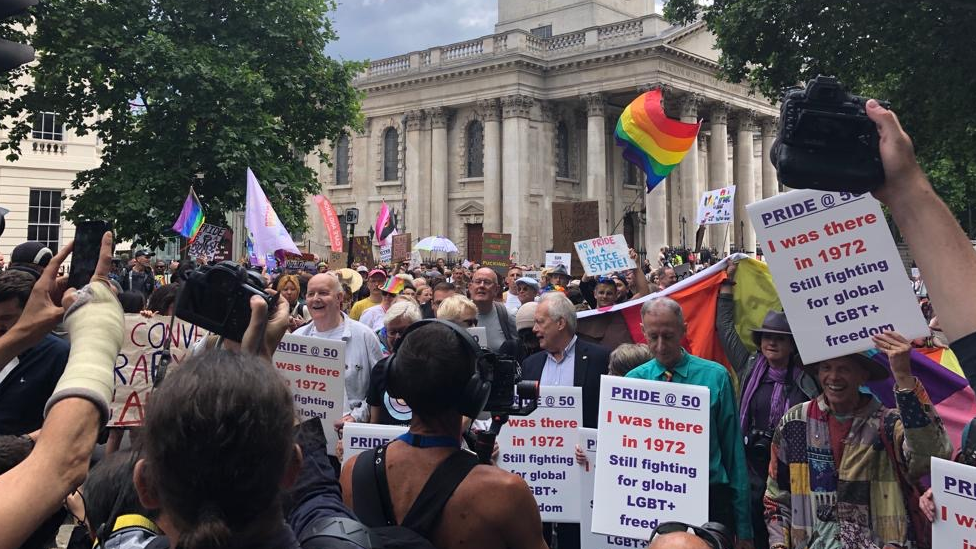
Peter Tatchell, pictured wearing a green shirt, took part in an event in central London on Friday marking the 50th anniversary of Pride
Uniformed police officers have been asked not to join the annual London Pride march on Saturday.
Organisers said it reflected the "very real concerns" of the LGBTQ+ community.
It follows accusations by campaigners of "very serious evidence of police homophobia" within the Met Police, especially over its handling of four murders of gay men by Stephen Port.
The Met said it recognised some incidents had "damaged trust and confidence in policing".
Thousands of people are expected to line the route of Saturday's Pride parade in central London, which will mark the 50th anniversary of the first Pride march in 1972.
'Extreme homophobia'
Pride in London said it worked "hard to strike a balance between the very real, legitimate concerns" of its community as well as being "welcoming", and that the presence of uniformed officers at the event "undermines that balance".
Gay rights campaigner Peter Tatchell, who said he had attended every London Pride parade so far, told BBC London he had been "urging for several years" that the police should not participate in Pride while wearing uniform, and said the move was a "welcome sign that they are listening to the communities concerned".
He said police exhibited "extreme homophobia" during the investigations into the deaths of four young gay men who were murdered by serial killer Stephen Port.
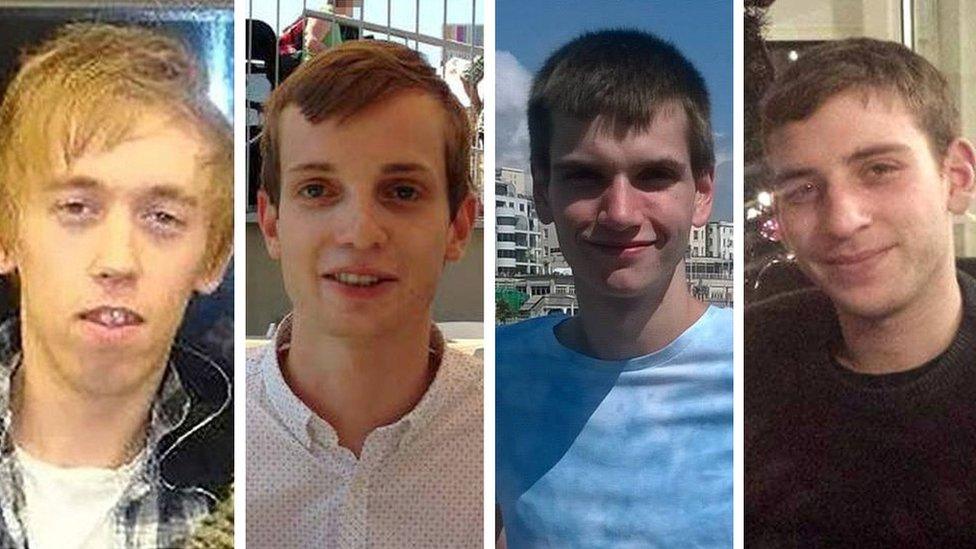
Stephen Port's victims (L-R): Anthony Walgate, Gabriel Kovari, Daniel Whitworth and Jack Taylor
"Every gay person who alerted the police to the possibility that a serial killer was on the loose was ignored, dismissed, or treated with contempt by the police," he said.
Port, 47, is serving a whole-life sentence for the murders of the men, whom he had met on a dating app, in Barking, east London between June 2014 and September 2015.
The deaths were not regarded suspicious until weeks after the fourth murder and officers made assumptions about the gay community, jurors were told at an inquest.
The hearing, which ended in December, found there were "basic failings" in the Met's handling of the cases and a solicitor representing the families said they believed the police's actions were "driven by homophobia".
Mr Tatchell believes the deaths were not taken more seriously because of assumptions officers made about the victims' sexuality.
"If police had properly investigated the first murder of the first victim, Anthony Walgate, then the lives of the three other gay men would have been saved," he said.
Mr Tatchell said there were many "good" police officers, who were welcome to march in civilian clothing: "Our objection is not to them but to the police as an institution that is failing the LGBT+ community," he said.
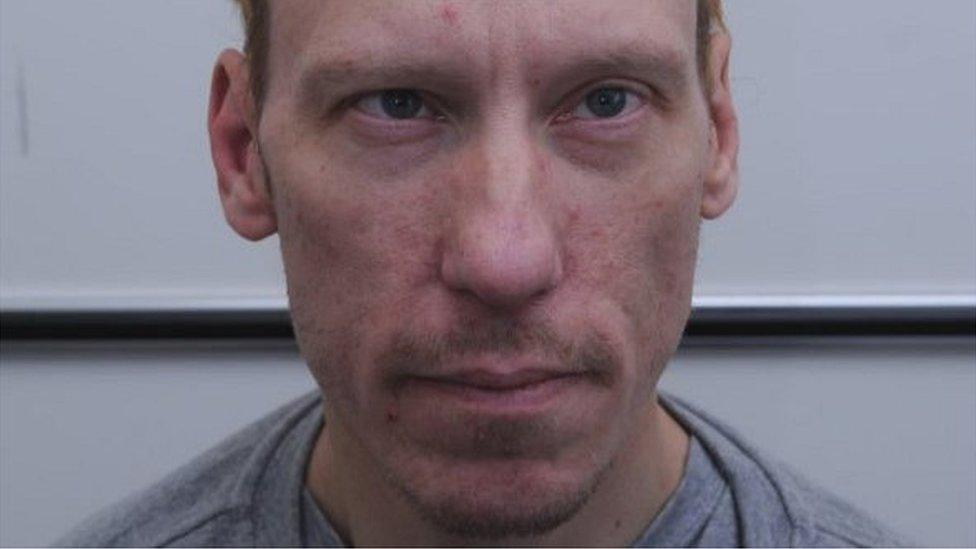
Serial killer Stephen Port was given a whole-life prison term for the murders of four young gay men
It was recently announced that the police watchdog, the Independent Office of Police Conduct (IOPC) is to reinvestigate the Met's initial handling of the four men's deaths after new information heard at the inquest found "material flaws" in its own inquiry.
A spokesperson for the Metropolitan Police admitted "a number of incidents in recent times have damaged trust and confidence in policing, especially amongst the LGBT+ community", and so in recognising that it had "decided in April upon a different approach for the Pride 50th anniversary parade in London".
"After close consultation with our own LGBT+ staff support association (the MPS LGBT+ Network), and listening to concerns raised by Pride in London on behalf of the community, we agreed to support those within the Network who wished to participate, rather than the Met itself at an organisational level."
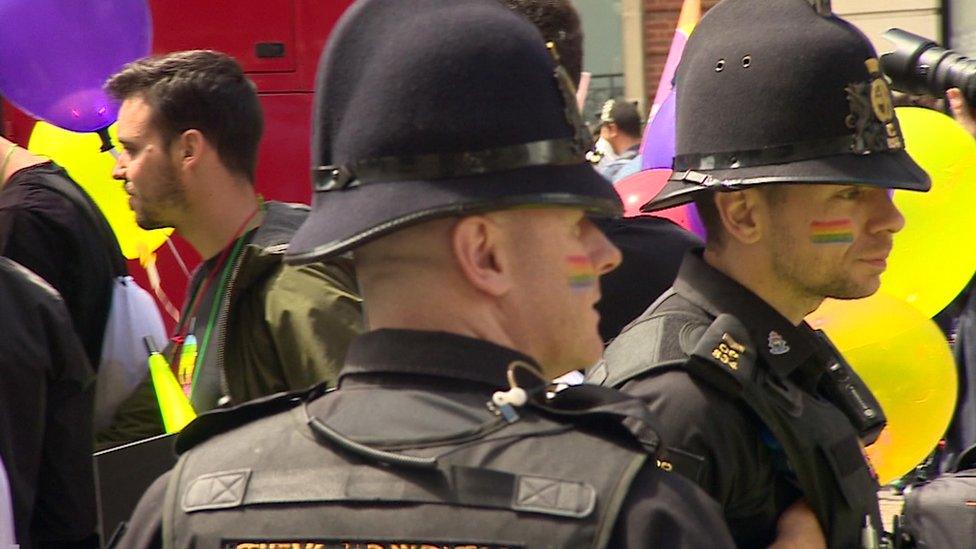
Officers have previously been welcome to attend Pride in uniform
Meanwhile, the Gay Liberation Front, which organised the first Pride march in London 1972, has signed an open letter, external calling for an end to any form of police presence at the event, including police patrols.
However, Mr Tatchell said he did not agree that a police presence at Pride should end, as he believed Pride was a "potential target" for extremists.
The letter, to Pride London organisers organised by campaign group Lesbians and Gays Support the Migrants, said: "While individual officers may or may not be queer, the organised presence of police at Pride en masse provides a platform to an institution that represses us.
"Having a police presence at Pride as well as patrolling Pride, makes Pride unsafe for our community."

Follow BBC London on Facebook, external, Twitter , externaland Instagram, external. Send your story ideas to hellobbclondon@bbc.co.uk, external
Related topics
- Published1 July 2022
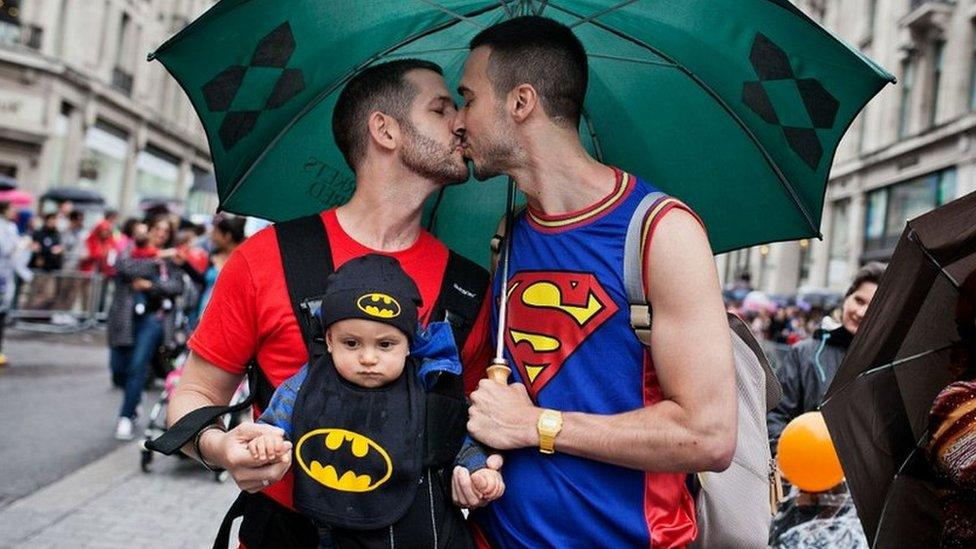
- Published1 July 2022
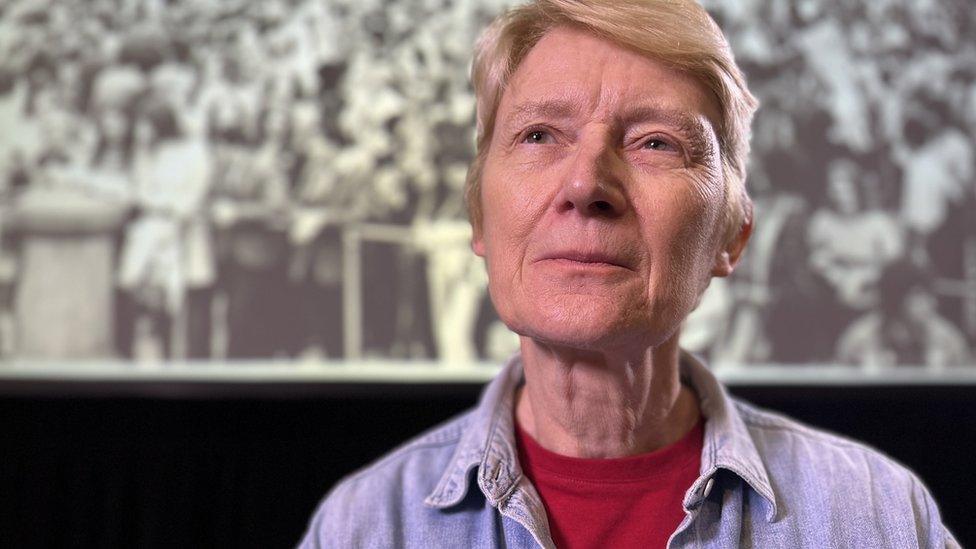
- Published23 June 2022

- Published13 December 2021
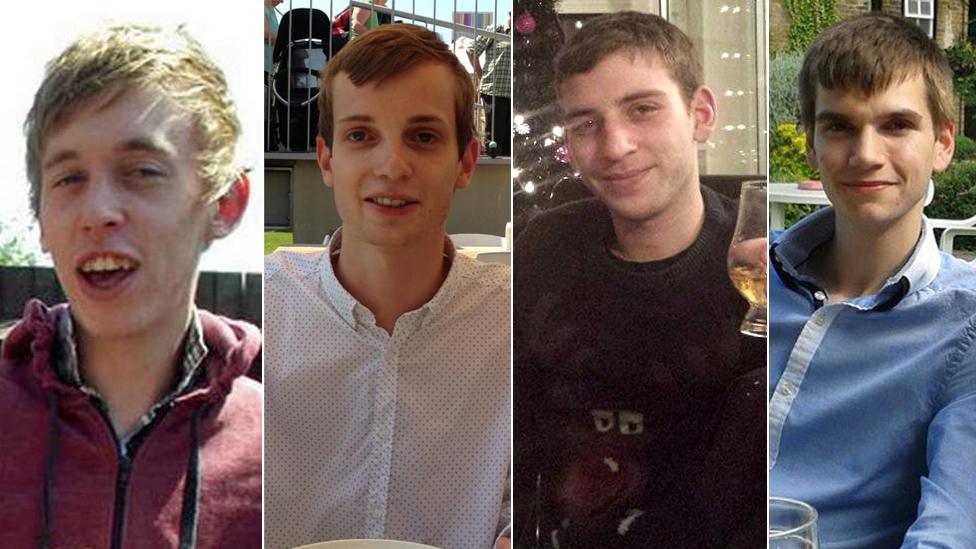
- Published10 December 2021
